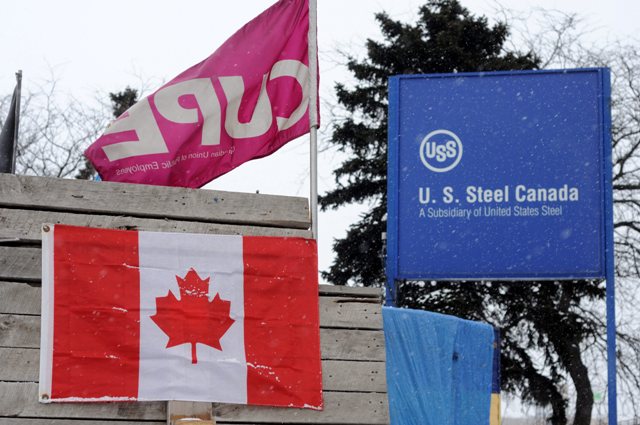OTTAWA – Now a mecca for multinationals, Canada’s most populous province may not be as quick to roll out the welcome mat for foreign companies in the future, if its young people have their way.

A nationwide survey shows Ontario teenagers, who call the country’s manufacturing heartland home, are most likely to frown on foreign takeovers.
According to a survey conducted by Civix, a non-profit focused on youth political engagement, 34 per cent of Ontario’s young people said foreign companies buying Canadian firms is a bad thing for the economy – a rate slightly higher than the national average. Fifteen per cent said it was good, while the rest were undecided.
“Canada should focus on growing our economy and funding new companies, as well as supporting our current ones,” one young man wrote in his advice to Flaherty.
Over the past decade these students witnessed Ontario’s descent into a have-not province. They saw a once-mighty manufacturing sector hollowed out and jobs evaporate – in many cases at the hands of multinational corporations.
Flaherty’s own riding of Whitby-Oshawa is dependent on the manufacturing jobs provided by the auto sector.
One of the highest-profile cases of a foreign takeover on Ontario soil is US Steel’s acquisition of bankrupted Hamilton steel giant, Stelco, which was purchased in 2007 and has since shuttered some operations and eliminated some jobs, citing economic conditions.
A year ago U.S.-owned Caterpillar announced it would shut down the Electro-Motive operation it bought in London, Ont., and move more than 450 jobs elsewhere – leading Ontario’s then Premier Dalton McGuinty to demand Ottawa clarify the rules around foreign takeovers.
- Honda expected to announce Ontario EV battery plant, part of a $15B investment
- Trudeau says ‘good luck’ to Saskatchewan premier in carbon price spat
- Canadians more likely to eat food past best-before date. What are the risks?
- Hundreds mourn 16-year-old Halifax homicide victim: ‘The youth are feeling it’
That reality seems to have influenced the way younger Ontarians look at trade and foreign ownership.
“If you’ve grown up and your parents have lost their jobs due to the decline in manufacturing, that effects how you view your economic future,” said Laura Stephenson, co-director of the political behaviour research group at Western University in London, Ont. “We’re not getting those manufacturing jobs back, and we keep losing more.”
But pointing the finger at foreign trade and multinationals is misdirected, according to Ron Kneebone, who teaches economics and social policy at the University of Calgary.
“Ontario is the most dependent on free trade of any province,” he said. “(Students) should go stand at the Ambassador Bridge and watch the thousands of trucks crossing each way, every day.”
Kneebone argues Ontario’s fortunes have been hard hit by the contracting of certain industries, like the auto sector – not foreign companies in general.
Ontario’s teens didn’t go so far as wanting to close Canada’s borders. Fifty-seven per cent said trade makes everyone more prosperous – a rate that puts them in the middle of the pack nationally.
But implicit in many of their comments was that trade needs to be diverse and targeted on what Canadians can gain from the world, not what the world can take from Canada.
“Work to become more self-dependent, minimizing imports, but maximizing exports, becoming an international power,” wrote one Grade 9 student.
Another student urged the government to counterbalance Canada’s trade dependency on the U.S., writing: “We need to increase the amount of countries we trade with in order to have a secured economy. Relying on one country is not a stable option.”
And while they may not like them, Ontario students aren’t clamoring to see Ottawa block foreign takeovers either.
At 34 per cent, they were slightly less likely than most other provinces to say the federal government should stop a takeover by a company owned by a foreign government. Nearly the same proportion nationally said the government should have the final say on takeovers. Only 11 per cent said Ottawa should stay out of those deals; the rest were undecided or didn’t know.
Ontario’s students are also ambivalent about their communities’ economic futures and their job prospects. Only 20 per cent said the economy was getting better, while 30 per cent said it was getting worse – a pessimism only matched in Quebec and Atlantic Canada.
And while almost three-quarters of Ontarians said they’re confident they’ll find an interesting job in Canada, their confidence fell short of their peers out west.
“It costs students so much to get their post secondary education and then when they finally get out into the workforce there are no jobs,” wrote one young woman. “Make more jobs and opportunities for the citizens of Canada!”





Comments